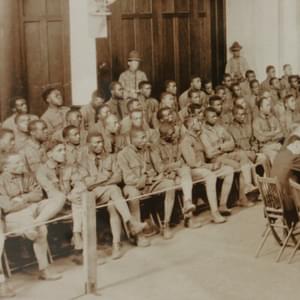
In a recent military death penalty case, the prosecutors rejected a plea agreement that would have resulted in a sentence of life in prison instead of the death penalty. The defendant, Sergeant Alberto Martinez, was then found not guilty on December 4, 2008, of murdering two fellow soldiers and walked free. Two years before the trial, Sgt. Martinez signed an offer to plead guilty to the murder charges and to describe “the essential facts and circumstances of the offenses to which I am pleading guilty” to the judge for a sentence of life in prison. The prosecutors in the case rejected the plea. Major John Benson, a prosecutor in the case who was not involved in the decision to reject the plea said, “I wish that the guilty plea had been accepted. I don’t think there can be any doubt whatsoever as to his guilt.” Barbara Allen, the widow of one of the slain officers, said, “They had a conviction handed to them and chose not to take it.” In the trial, a military jury requires a two-thirds majority to convict. When prosecutor Major Benson described why the jury didn’t reach a guilty verdict, he said, “A strong opposition to death penalty was a definite factor among some of the panel members.” He added, “It’s quite possible that they were not able to separate the conviction from the punishment.”
(P. Zielbauer, “GI Offered to Plead Guilty Then Went Free in Iraq Deaths,” NY Times, February 21, 2009). See U.S. Military and Arbitrariness.
Arbitrariness
Dec 14, 2023




